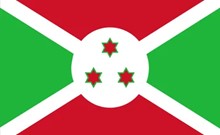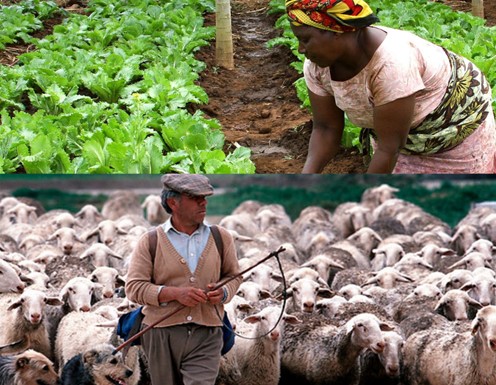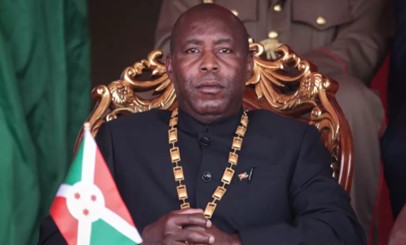
Wednesday 28 June 2023
Burundi celebrates Independence, 1 July 2023
By Joy Osiagwu
Situated in the east-central Africa Great Lakes region, Burundi is one of the small countries on the African Continent, with its capital also the largest city in Bujumbura. Burundi has a population of 12,941,635. The major languages spoken are French, English and Kirundi. Other dialects are Rundi and Kiga. 80% of the people are Christians. The country gained Independence in 1962 after the 1959 request for freedom from Belgium by King Mwami Mwambutsa IV. The struggle for Independence was spearheaded by the Rwandan Revolution.

The first election was conducted in September 1961, with Uprona, a multi-ethnic unity party under the leadership of Prince Louis Rwagasore, winning the majority vote. 29-year-old Rwagasore was assassinated before the end of the elections. However, his father served as the nation’s King under a constitutional monarchy. Burundi became a member of the United Nations in September 1962.
The Tutsi and Hutu are the major ethnic groups, with Hutus having the dominant population.
Hutus are traditionally farmers, while the Tutsi are pastoralists.
Melchior Nddadaye became the first democratically elected President of Hutu origin in an election conducted in 1993. But he was assassinated in October 1993 after three months in office. His reforms were not favourable to the Tutsi-dominated military. This situation led to a civil war between the Tutsi and Hutu ethnic groups, which killed over two hundred thousand people. Burundi has remained one of the poorest nations of the world as it continues to recover from the twelve-year ethnic-based civil war.
Current Governance Structure
Burundi operates a presidential representative democratic republic with the President as both head of state and head of government.
The Executive power is vested in the government, while the government and the National Assembly control the Legislative arm.
Evariste Ndayishimiye assumed office as President of the country in 2020 after the sudden death of President Pierre Nkurunziza during the peak of the Covid-19 pandemic.

Trending News
Burundian returnees to the country have complained about economic challenges and human rights issues in the country even as they continue to endure hardship as they struggle to rebuild their lives. Over four hundred thousand Burundians fled to neighboring nations during the 2015 political crisis. Two hundred and ten thousand returned this year, including over twenty thousand returned in 2022, as reported by the New Humanitarian Organization in Geneva, Switzerland. Some returned after receiving positive news about the government of Évariste Ndayishimiye. However, others said they left because of the conditions in under-resourced refugee camps.
“I came back last year because I was having health and financial problems in DR Congo where I fled to,” said Jean Harriman, who is from western Burundi. “It was not possible to eat there, and my children were becoming regularly sick.”
Burundi Ottawa Connection
The Burundi Diaspora community under the umbrella ofAlliance des Burundais du Canada is a closely knitted group that celebrates the culture and values of Burundi, promoting the beauty of the people in Canada.
The Ottawa community celebrates one of the cultural performances, ” The Ishaka cultural troupe”, at major cultural festivals in the capital region.
They have a cordial relationship with Ottawa’s diverse community, as seen in most community activities covered by the Black Ottawa Scene over the years. Click on the links below to read about their previous events.
Burundi-Canada relations
Burundi and Canada enjoy bilateral relations dating back to 1969. The Burundi Embassy is at 325 Dalhousie Street, Suite 815, Ottawa, Ontario K1N 7G2, Canada. Phone: (+1) (613) 789-0414,7042. Burundi has been a member of the International Organization for Migration, (IOM) since the year 2007. The nation signed a cooperation agreement with the IOM IN 2010, establishing an IOM Mission in Burundi. The country is also a member of the United Nations, World Trade Organization, the African Union and the African Development Bank, and the East Africa Community.
